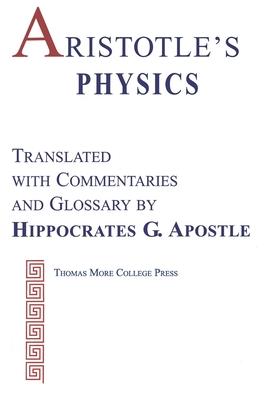
Aristotle was well aware of applications of mathematics to other sciences, but he used different names for those sciences, e.g., mechanics, optics, astronomy, acoustics, and these taken together hardly differ from modern physics with respect to general subject and treatment. Thus, in his Mechanics, he states that the subject belongs to physics, but the treatment is mathematical.
Hippocrates G. Apostle held that the Physics was written as a science should be, and, for this reason, he translates it accurately and scientifically, with familiar and consistent terminology, a glossary of definitions, and extensive commentaries, thus making the translation readable and understandable
Aristotle was well aware of applications of mathematics to other sciences, but he used different names for those sciences, e.g., mechanics, optics, astronomy, acoustics, and these taken together hardly differ from modern physics with respect to general subject and treatment. Thus, in his Mechanics, he states that the subject belongs to physics, but the treatment is mathematical.
Hippocrates G. Apostle held that the Physics was written as a science should be, and, for this reason, he translates it accurately and scientifically, with familiar and consistent terminology, a glossary of definitions, and extensive commentaries, thus making the translation readable and understandable
Paperback
$22.45